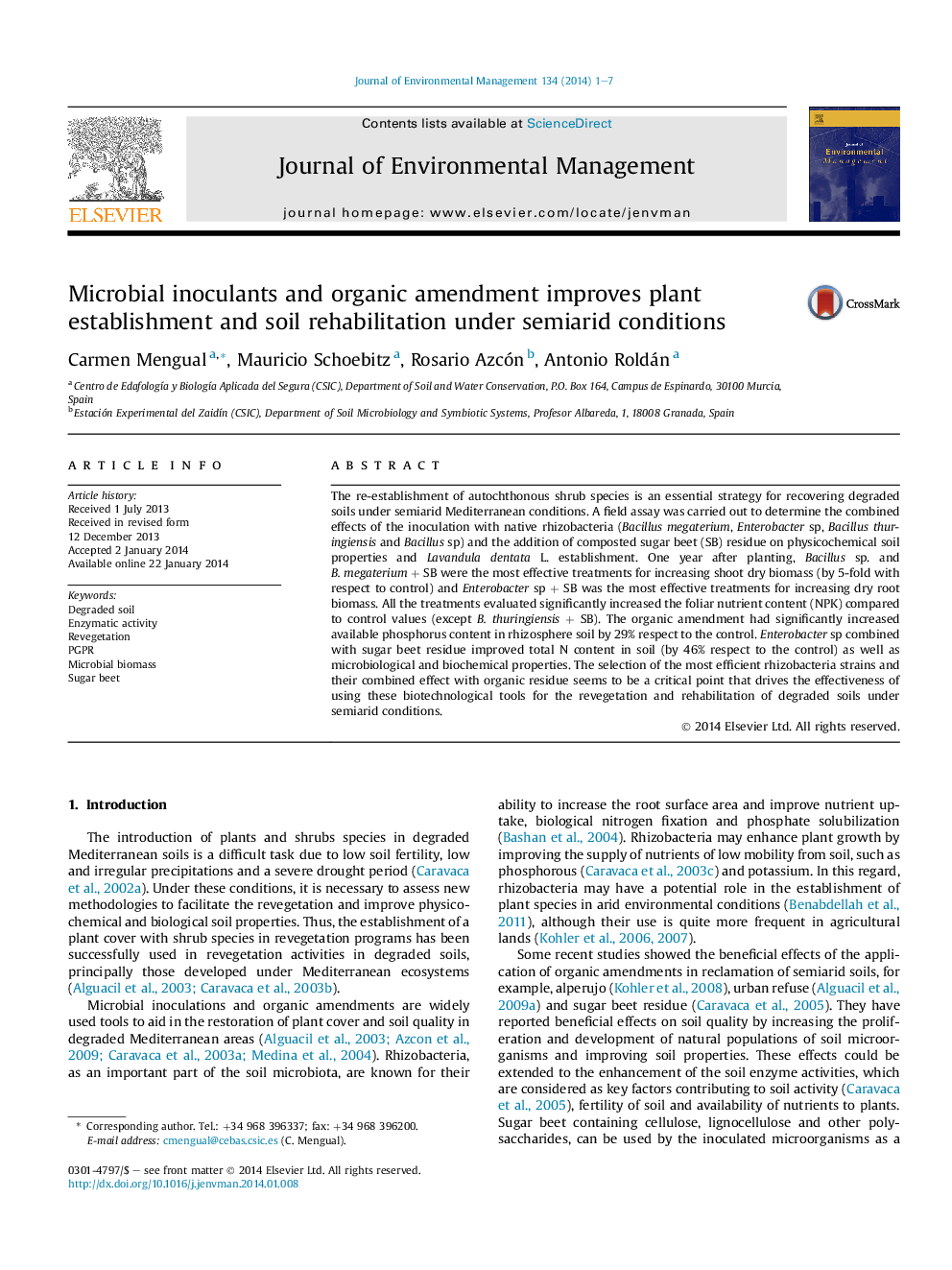| Article ID | Journal | Published Year | Pages | File Type |
|---|---|---|---|---|
| 1055976 | Journal of Environmental Management | 2014 | 7 Pages |
•Rhizobacteria and amendment favored plant establishment in a degraded soil.•The treatments applied improved plant nutrients uptake.•Soil quality parameters were distinctly enhanced by the treatments and their combination.•The application of sugar beet and rhizobacteria could be a feasible strategy for land reclamation.
The re-establishment of autochthonous shrub species is an essential strategy for recovering degraded soils under semiarid Mediterranean conditions. A field assay was carried out to determine the combined effects of the inoculation with native rhizobacteria (Bacillus megaterium, Enterobacter sp, Bacillus thuringiensis and Bacillus sp) and the addition of composted sugar beet (SB) residue on physicochemical soil properties and Lavandula dentata L. establishment. One year after planting, Bacillus sp. and B. megaterium + SB were the most effective treatments for increasing shoot dry biomass (by 5-fold with respect to control) and Enterobacter sp + SB was the most effective treatments for increasing dry root biomass. All the treatments evaluated significantly increased the foliar nutrient content (NPK) compared to control values (except B. thuringiensis + SB). The organic amendment had significantly increased available phosphorus content in rhizosphere soil by 29% respect to the control. Enterobacter sp combined with sugar beet residue improved total N content in soil (by 46% respect to the control) as well as microbiological and biochemical properties. The selection of the most efficient rhizobacteria strains and their combined effect with organic residue seems to be a critical point that drives the effectiveness of using these biotechnological tools for the revegetation and rehabilitation of degraded soils under semiarid conditions.
